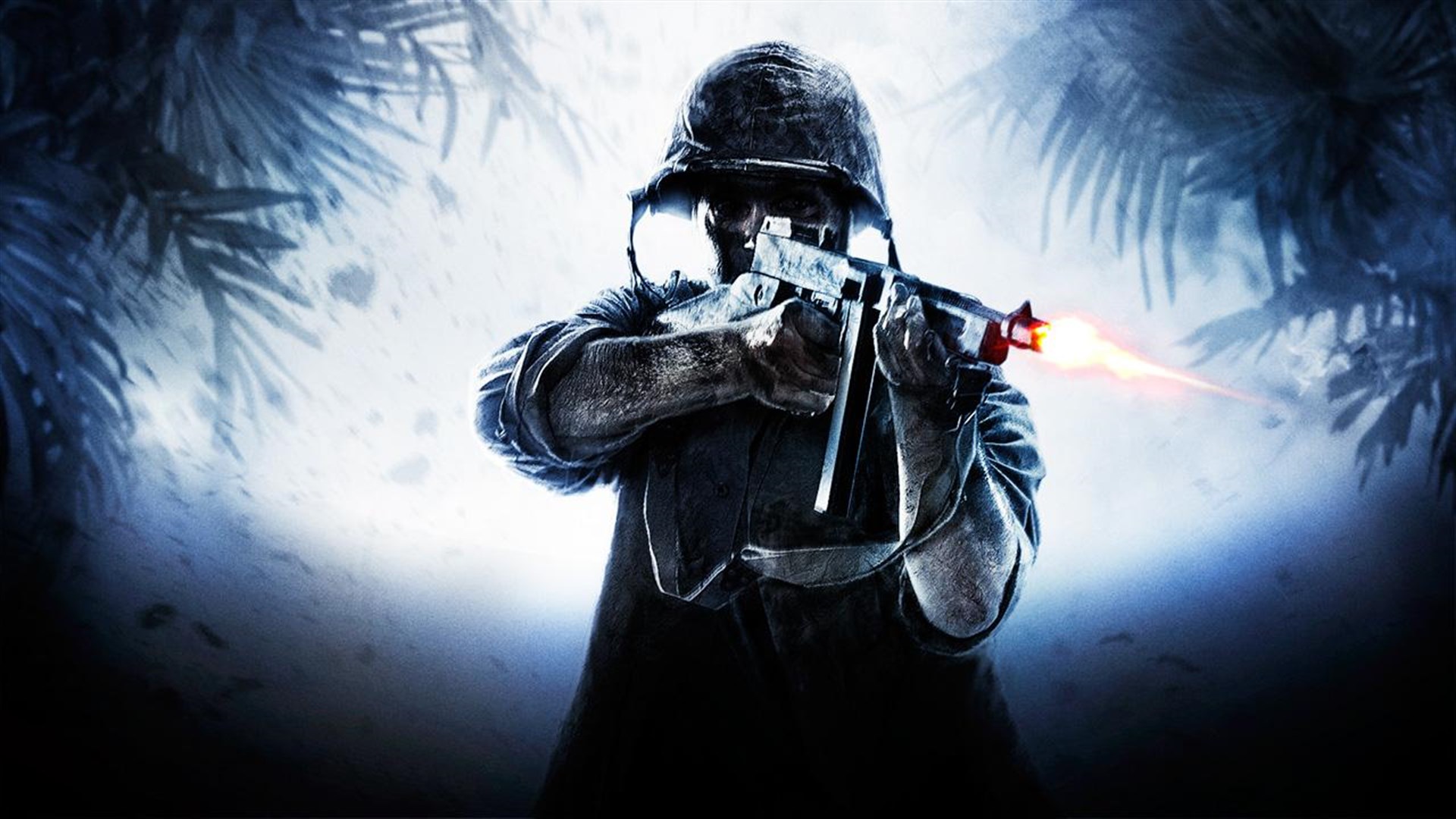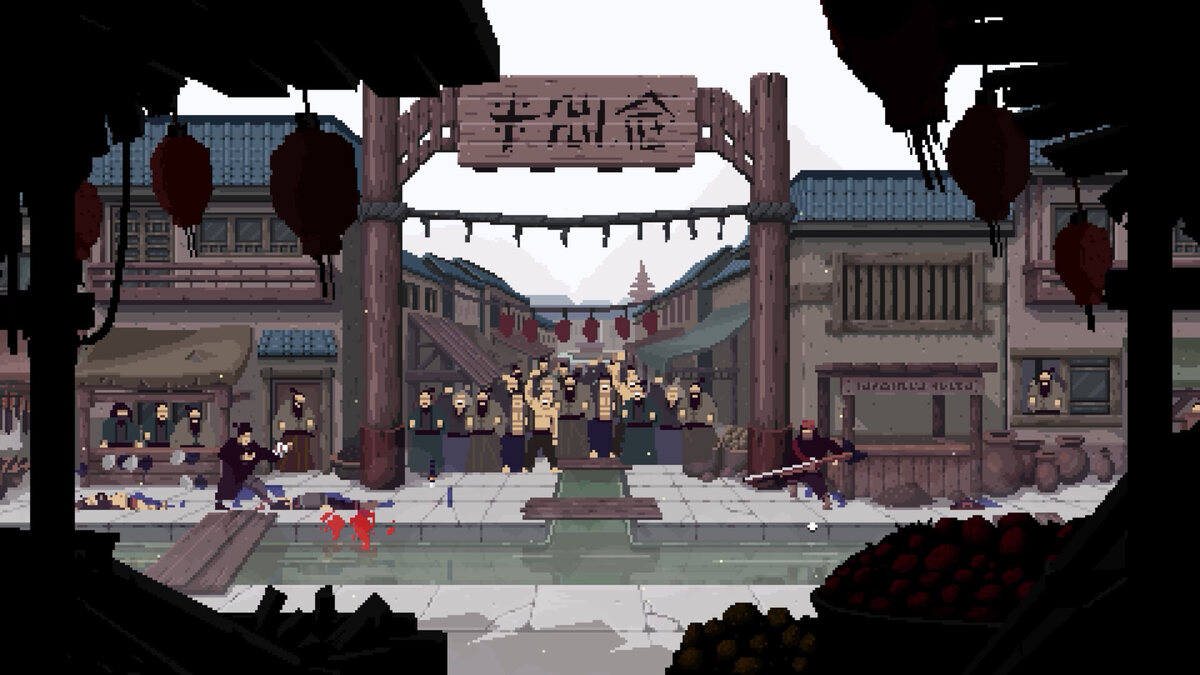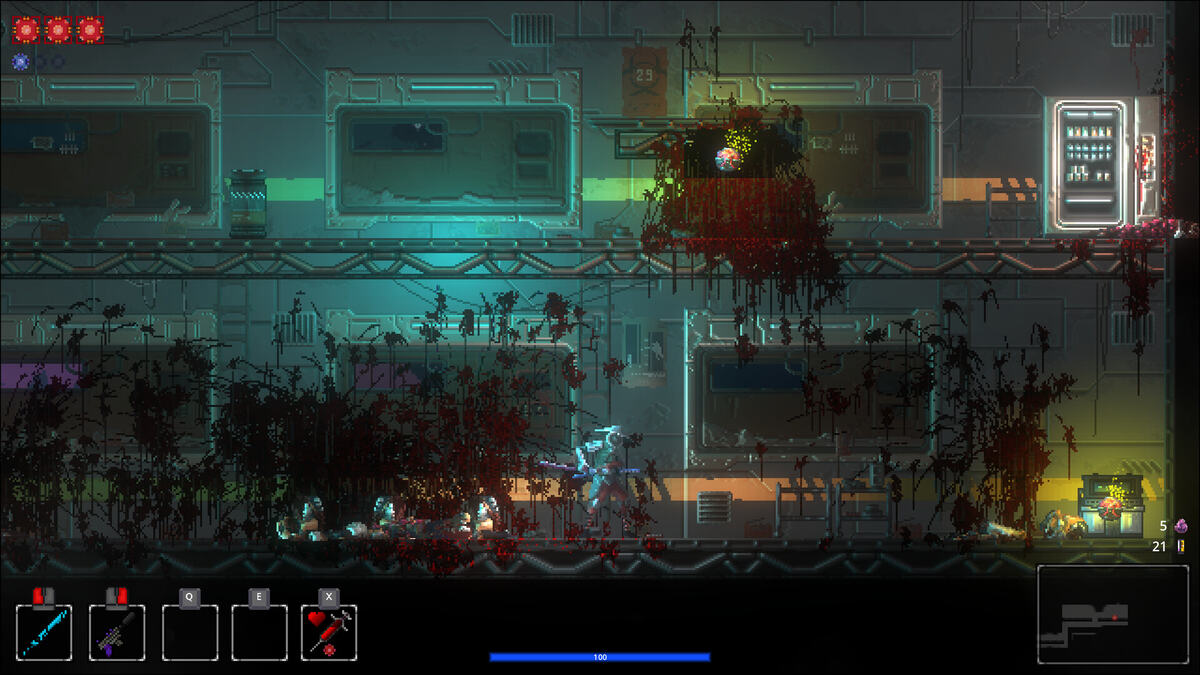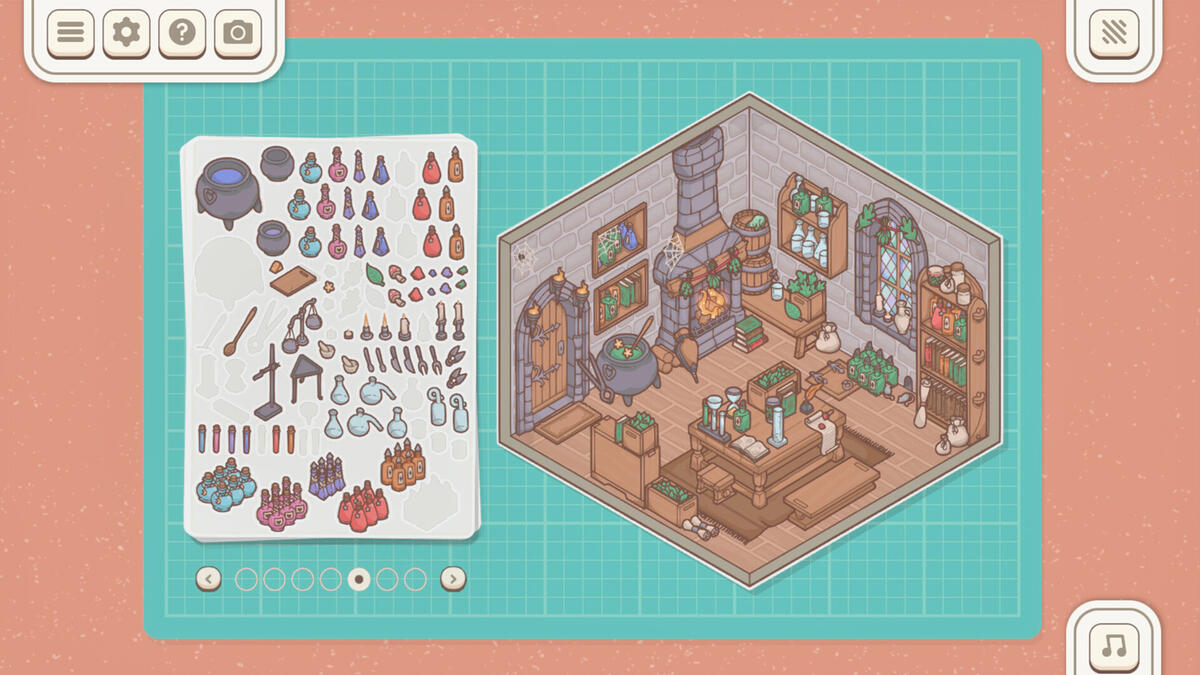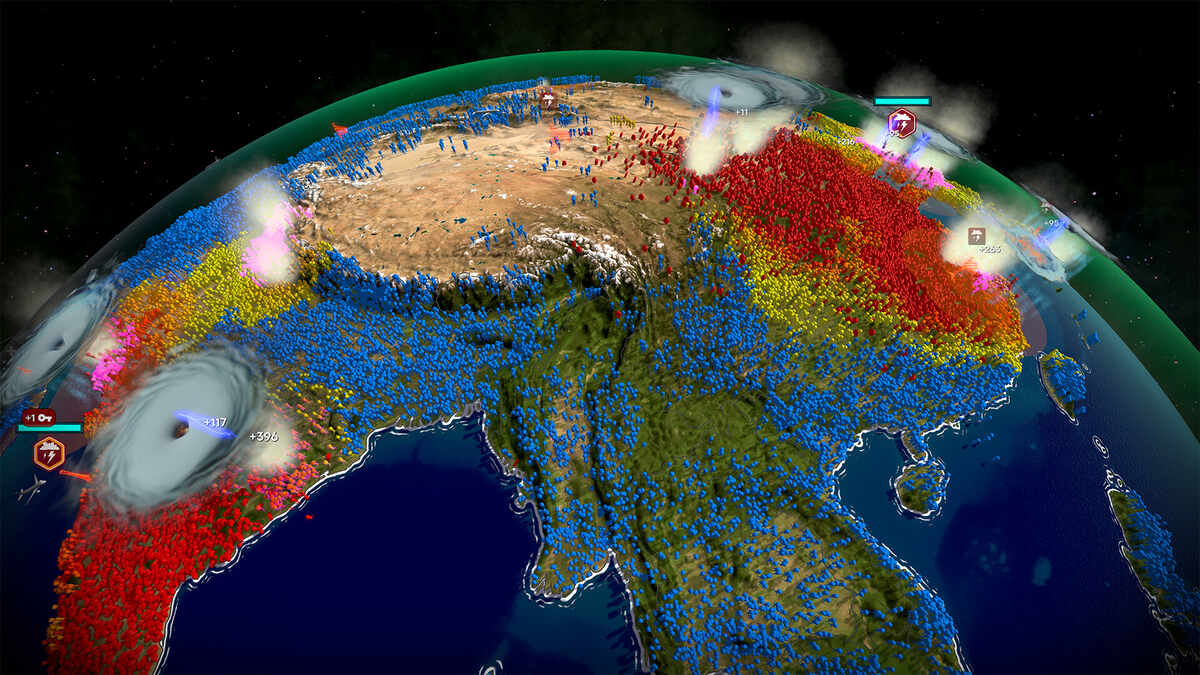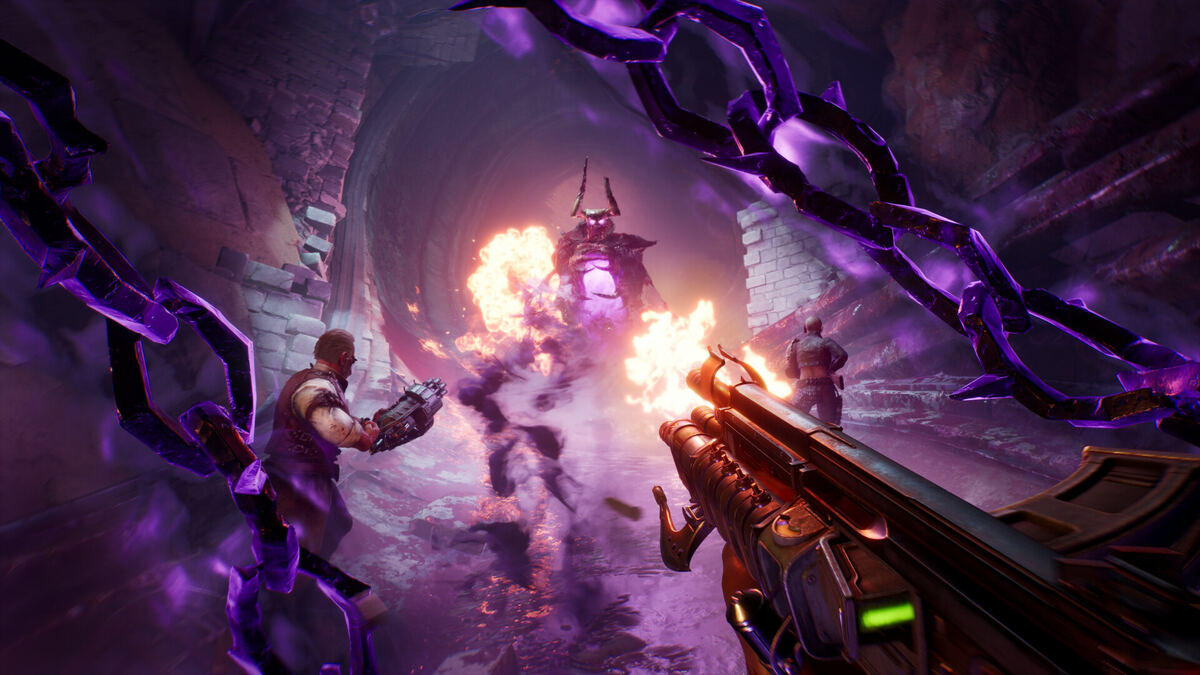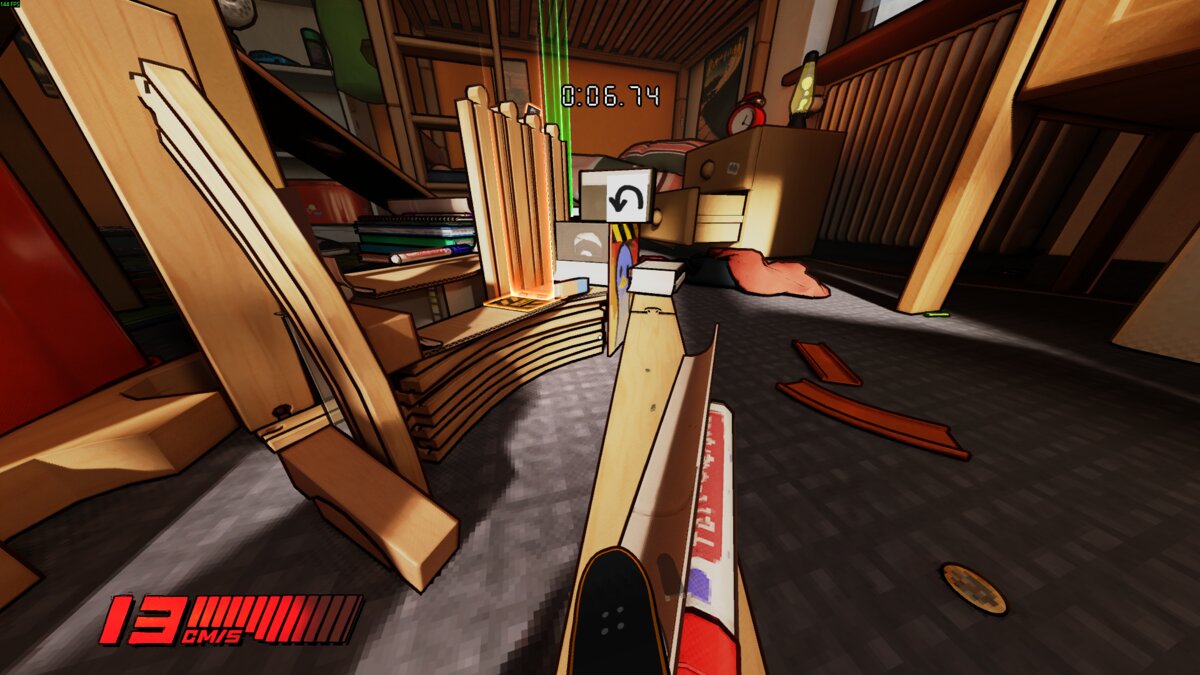You can trust VideoGamer. Our team of gaming experts spend hours testing and reviewing the latest games, to ensure you're reading the most comprehensive guide possible. Rest assured, all imagery and advice is unique and original. Check out how we test and review games here
Infinity Ward’s Call of Duty 4: Modern Warfare has sold more copies than Halo 3. It sits atop the most played list on Xbox LIVE like an invulnerable king perched on a throne. It was, for many of you, 2007’s Game of the Year (not us though, but it was close). It raised the FPS bar, a bar many developers have failed to reach since. And now the time has come for the next game in the multi-million selling series. This time though we’re going back to WW2, there’s a four-player co-op campaign, vehicles in multiplayer and CoD3 developer Treyarch is in control. We sat down with senior producer Noah Heller and creative lead Rich Farrelly to get the first details on the game and find out why there will never be a numbered Call of Duty game ever again.
VideoGamer.com: There was a lot of speculation about going back to WW2. When do you think games will be done with a WW2 setting?
Noah Heller: It’s going to be a long time before WW2 is done. It’s about whether you can tell new stories and whether you can present something in a contemporary new fashion. The player doesn’t want the same old thing. If you deliver that he shouldn’t buy it any more than he shouldn’t buy a repeat police drama or a Grand Theft Auto game set in the same place every time. People wouldn’t play that. The challenge to us, because we knew we wanted to make a WW2 game, was to present something that was new.
Rich Farrelly: For instance, with Call of Duty 4: Modern Warfare, arguably there were a lot of modern warfare games out there when they came out, but what they did was they came out to market and they redefined it. They said: ‘OK, we know what the content is, we’re going to restructure what is expected from this genre.’ And that’s what we want to do with the WW2 genre. We wanted to press the reset button. We want to say: ‘OK, this is not the WW2 game you’re used to seeing. This is something new. Yes you may have seen some of these locations before but this is nothing like you’ve ever played.’
NH: That’s a great comment. We’re not coming in to be second best. The only way we’re going to make WW2 games and the way we’re going to make any games under the Call of Duty name is if they’re the best example of the genre. Any genre we enter we want to own it. We’re getting rid of the number in Call of Duty for a very specific reason. It’s because we want you to know that when you’re playing Call of Duty: World at War you’re playing the best shooter, the best WW2 game ever. Likewise when you’re playing Modern Warfare, likewise when you play any game that will be called Call of Duty. The bar for us is not so much is it another game in this genre? It is, is it the best game in the genre? Players will always have time for the best games. They will always have time for highly rated games that show polish and love and passion from the team. I have no doubt about that. So as long as we can put that effort in and show the player that kind of polish I have no doubt that they are going to enjoy the game. I’m very confident about that.
VideoGamer.com: What do you think of the reception to Call of Duty 3?
NH: I’d say that one of the things that’s hard for a player to understand, I’m sure you guys can understand it because you have a lot more insight into the industry, is that Call of Duty 3 was about eight months end to end for development. Is that about right?
RF: That’s about right, yeah.
NH:And it’s very hard to make a great game in that time. Call of Duty 3 is a very good game. It sold very well so a lot of people must have liked it.
RF: It rated really good.
NH: Yeah it had an 83, 84 average. But it’s not the game this team could have made if it had the time to polish to the level they needed to. Even so with two years on this game for the first time ever, we’re going to pull it from Rich’s cold fingers when it’s time to put this game in a box. The team is polishing and pouring love into the game. But that’s the real difference between this game and Call of Duty 3. It’s the time to actually iterate and get things right, to make things feel right.
RF: Our game even a couple of months ago was very close to overall what we would have had to work with with Call of Duty 3 when we were starting to wrap it up. So we had the game built up and laid out for quite some time, and now we’ve had time to iterate over things and see how they work. See if the level order is correct, see if the flow is good, take out any events that seem superfluous, any features that don’t meet the very high standard bar set by us and by just looking at the competition and our predecessors, are either cut or improved. The team on this game is made up of some of the best talent in the industry and they’re very experienced in this franchise and genre. They’re all very motivated and focused on making the best game they can.
NH: We frequently hear the guys say: ‘We’re going to make the best game of our lives’. That’s how we approached this game. It has everything to do with what’s the scene going to be, what’s this level going to be, how polished is this content going to be? But it’s about a team that after years and years of single year development cycles, or less than a year, finally has a chance to open up and show what they’ve got. I feel like it’s a little bit of an underdog story almost. Here’s a team that’s never had a chance to actually make a game with this much time. Modern Warfare comes along and raises the bar really high and now the team says, we’ve got to show what we’ve got, we’ve got to show up with a great game or else the players aren’t going to want to play it. Expectations are so high.
RF: I think that’s true of any game.
VideoGamer.com: Call of Duty 3 had that hand to hand element which was thoroughly scripted…
RF: You try things out and if they work out you pursue it, if they don’t you don’t. That was a feature that while it was probably a good idea at the time maybe we didn’t have enough time to develop it.
VideoGamer.com: Was that something you had to scale back from your original concept because you had an eight month turnaround?
RF: Absolutely.
VideoGamer.com: Do you think Call of Duty 3 then was rushed and a filler title?
RF: I don’t think it was a filler title. Because we were so focussed on making the best game we can, sometimes we, at least in that case, we tried maybe to put too much in the game for the amount of time we had to develop.
NH: Biting off more than you can chew is a big thing. Look at the great games of just this last six months or year. Look at Modern Warfare, look at BioShock, look at GTA 4. What these games have in common is enough time to polish and iterate on it, and I think as an industry we’re learning how important that is.
RF: If you have three or four key features and those features are so highly polished that they’re pretty much flawless, that’s far more valuable than having a mixed bag and a bunch of stuff that kind of works.
NH: A player doesn’t know when he buys a game that this game was a year cycle or a two year cycle. He just knows about the quality of the game. And thankfully there’s usually a great correlation to the time spent on a game and its overall quality. As an industry we’re learning that. This is a game where we really wanted to show what we can do when we have time.
VideoGamer.com: In World at War, what will be the percentage be of American missions and Russian missions?
RF: I’d say it’s a pretty even split. I can’t go into exact numbers but it’s pretty well balanced.
NH: I think the interesting thing will be as you play one campaign versus another you’re going to be playing a very different sort of game.
VideoGamer.com: What’s the latest on a release date?
NH: I don’t think we’re announcing that quite yet. But it will be in the Fall (autumn).
VideoGamer.com: The only other Japanese theatre of war FPS that springs to mind is Medal of Honour: Rising Sun. The consensus is that it was a poor FPS game. What did you learn from that?
RF: We learned not to make a poor FPS game.
NH: You start with a great shooter and then you build enemies and genres and stuff on top of that.
RF: The content and the quality of execution of the content is the primary concern. The rest follows. The back drop is exactly that. It’s just a setting for the player. If he’s not having fun, if he’s not intrigued and engrossed in what he’s doing then all of that doesn’t matter.
NH: We dropped Modern Warfare AI into Japanese soldiers and put them in the Pacific and it didn’t feel right. You don’t expect the enemy to react that way, right? Well we didn’t know that until we did it. We thought that we’d be able to get away with that but we realised we had to build a game specifically around that enemy, you have to build attacks around that enemy. You have to have scripted moments and moments that are AI inspired that make you feel like you’re playing a different enemy or otherwise you’re like ‘yeah I’m fighting the same Europeans I have in many Call of Duty’s, it’s just happening on a different island’.
RF: Just like the consoles have evolved and the games have evolved we realised our audience evolves too. It’s not always going to be the same expectation for the games and so this is why we had to reinvent things as we go along. Because if we just keep doing the same thing over and over again, while the audience is evolving we’re stuck in a rut.
NH: Call of Duty has always pushed the bar of what’s expected from shooters, from scripting to aiming down sights to the way you take damage, everyone takes damage like we take damage now. Modern Warfare I’m sure every game will be doing a bullet penetration, I’m sure everyone will be doing a perk system, they’re great features. What we want to add to that with World at War is tactics that feel realistic, environments that are affected realistically by the weapons that you use in them. And co-op of course. We want to show people how co-op is done the Call of Duty way and that’s a really high bar for us. It’s just finally we have enough time to do it that way.
VideoGamer.com: You’ve spoken briefly about multiplayer. You said you will be adding on to what is already there. Does that mean we can expect the same modes and maps?
NH: No, no no no! What I’ll say now is we recognise that Call of Duty 4: Modern Warfare is great multiplayer. It’s a great game but the multiplayer is stand out phenomenal. We would not want to take that engine and remove things from it. We’re not going to keep any game types for instance that don’t fit with our setting or we’re not particularly passionate about. But the philosophy of map building, the way the perk system works, these are great foundation points. And then on top of that we’ve built things like area of effect perks, speciality perks that feel like they fit really well with WW2 and vehicles of course. We can’t get away with delivering tight multiplayer and then turn around and deliver sloppy vehicle support. The players are expecting that. So that’s what we kind of knew when we say we want to be adding to it. Call of Duty 4: Modern Warfare multiplayer is a home run and we want to add on top of that.
RF: People that are used to playing Call of Duty: Modern Warfare will be able to easily slip into our multiplayer game and then go ‘oh, and they also have this…’. ‘And it’s great too’.
VideoGamer.com: You have obviously used CoD4 as a reference but has Infinity Ward given you any feedback on World at War?
NH: Absolutely. We share builds back and forth with their team. And vice versa.
VideoGamer.com: Does it help in a way?
NH: Yeah. I mean please, we’re our own team and we need to build our own game but long before Call of Duty 4 was shipping we were looking at builds of that game and working on that engine long before that game shipped. There’s good communication between the two teams.
VideoGamer.com: Some fans of CoD4 really like it because it’s an infantry only game. Are you afraid you’re going to alienate some people?
NH: Absolutely. And that’s why we’re spending a lot of time on vehicle balancing.
RF: And also creating specific levels that are keyed towards specific gameplay. And even on the vehicle maps, there are sections where we say no vehicles allowed.
NH: Also of course we provide many many maps which are infantry only. So if people don’t want to play with vehicles they don’t have to. The key is the moment you get into a vehicle you get more fire power, more armour but maybe you’re a sitting duck and maybe draw fire and the careful balance of those things will be what makes that feature sing.
VideoGamer.com: Are the vehicles team related, like being more effective manning a gun on a tank for example?
NH: Absolutely. We feel that the team gameplay is a great thing to support. There will also be LVT vehicles for instance that go through the water. Water and fire on maps will be a new feature of multiplayer and we’ll see how that plays out. We don’t add to great multiplayer lightly but the team is really passionate about it.
VideoGamer.com: Do you think most CoD4 fans will look at World at War and see it as the follow up to Modern Warfare or the follow up to CoD3?
NH: About half the people that bought Modern Warfare never played CoD before. Of these for about half CoD3 was their first game. There’s an expectation from CoD4 that they’re going to get a great shooter. Making both these groups happy is our goal this time around.
RF: We all read the forums. Whatever they’re expecting from a WW2 shooter will be completely shattered when the game comes out.
VideoGamer.com: Thanks for your time.
Call of Duty: World at War is due out for Xbox 360, PS3, PC and Wii this Autumn.
Call of Duty: World at War
- Platform(s): Nintendo DS, PC, PlayStation 2, PlayStation 3, Wii, Xbox 360, Xbox One
- Genre(s): Action, First Person, Shooter
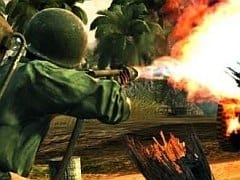
/https://oimg.videogamer.com/images/a6ef/cod_world_at_war_4.jpg)
/https://oimg.videogamer.com/images/9c74/cod_world_at_war_3.jpg)
/https://oimg.videogamer.com/images/286e/cod_world_at_war_2.jpg)
/https://oimg.videogamer.com/images/6fb3/cod_world_at_war_1.jpg)
